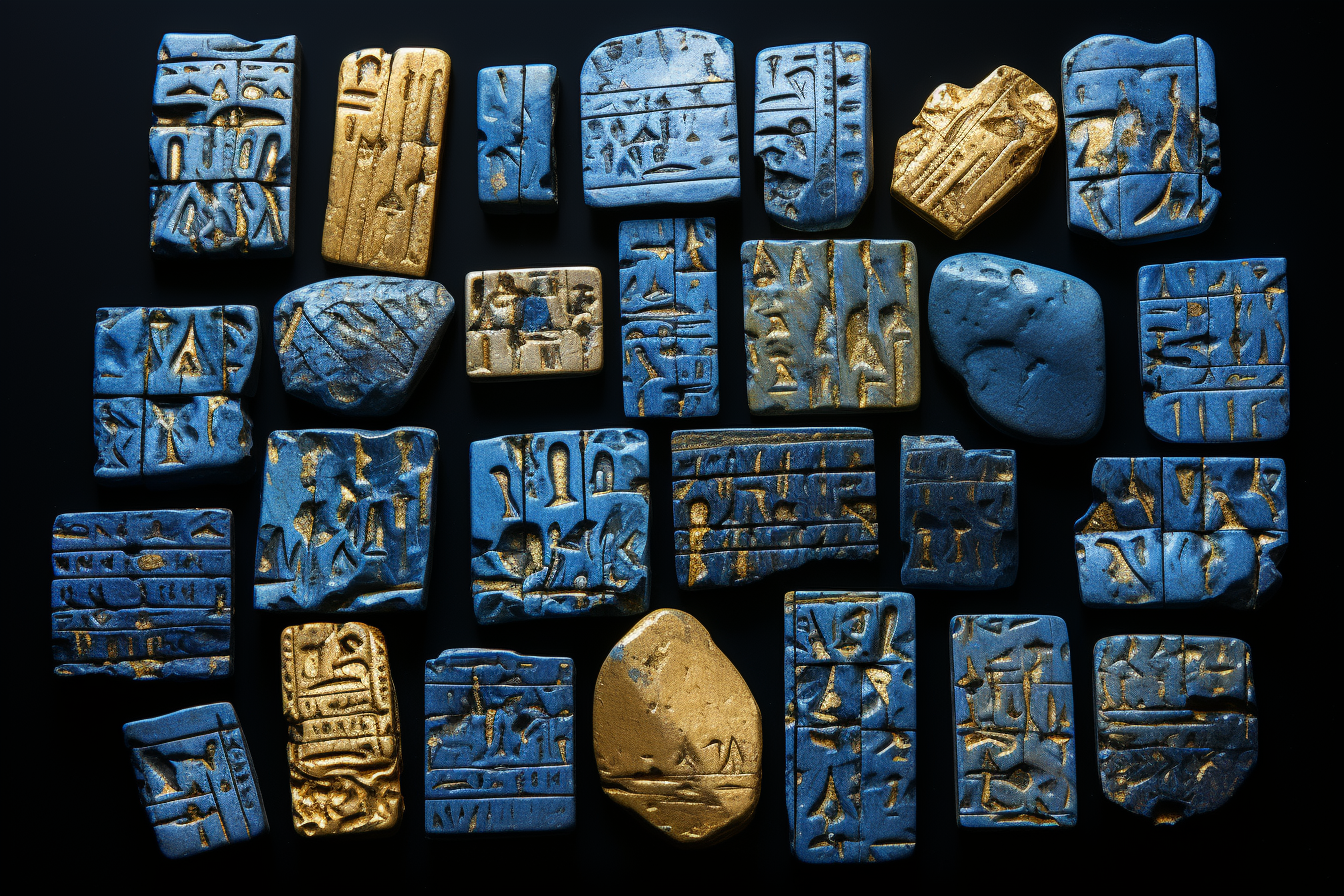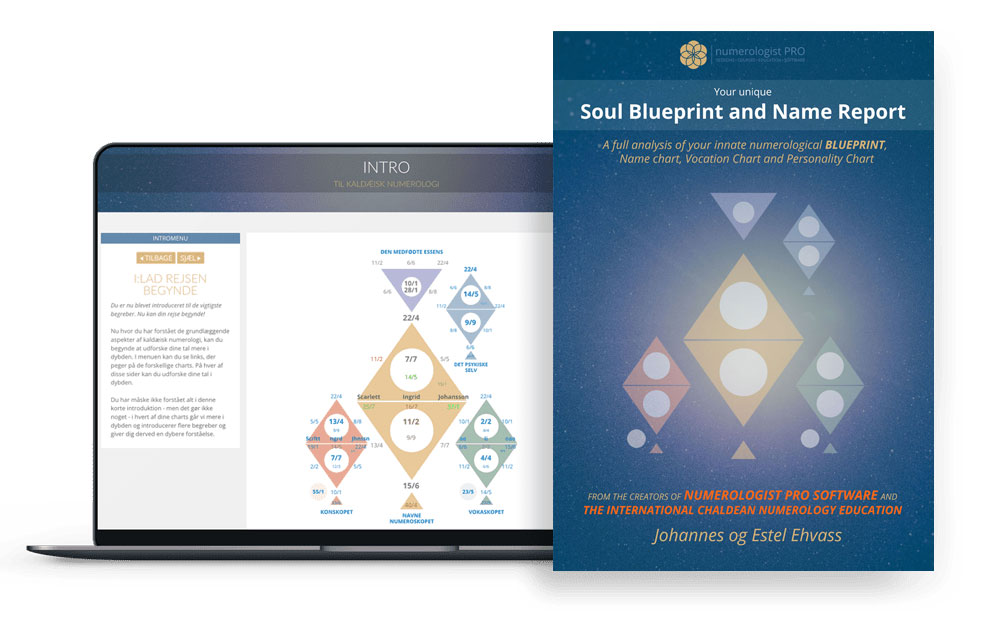Enuma Anu Enlil: The Epicenter of Babylonian Celestial Omen Interpretation

Johannes Ehvass
Welcome, dear reader! Together, we embark on a captivating journey into astrology, a timeless art and science that has accompanied humanity since its earliest days. Each astrological discovery not only mirrors the era and culture it emerged from but also feels like a celestial gift, as if the universe is directly speaking to us. Through these articles, I share with you the profound journey of how astrology has grown and evolved alongside us. Let's explore this cosmic connection that has, for millennia, enriched our understanding of ourselves and the universe around us.
Enuma Anu Enlil: The Epicenter of Babylonian Celestial Omen Interpretation

In the annals of ancient astrology, few texts are as foundational or as influential as the “Enuma Anu Enlil” (often abbreviated as EAE). This monumental series of cuneiform tablets, originating in the Babylonian period, offers invaluable insights into how early Mesopotamian cultures attempted to decipher the will of the gods through the language of the stars. Its name, translating to “When the gods Anu and Enlil,” signals the gravity and divine significance ascribed to the text, with Anu being the god of the heavens and Enlil the god of wind and earth.
The Structure of Enuma Anu Enlil
The EAE is not a singular text but a compilation, with estimates suggesting it comprises around 70 tablets. These tablets are arranged systematically, with each focusing on specific celestial phenomena such as eclipses, planetary movements, and meteorological events. Organized both thematically and sequentially, the EAE serves as an extensive manual for Babylonian astrologers, detailing myriad omens and their associated interpretations.
The Origin and Compilation
While the EAE is distinctly Babylonian, its roots trace back to the earlier Sumerian and Akkadian periods, drawing from their omen-based traditions. Over time, these individual omens were collated, refined, and expanded upon, culminating in the EAE’s compilation during the first millennium BCE. The text is believed to have been continually updated and revised, with different versions suggesting adaptations in response to new astronomical discoveries and shifting sociopolitical landscapes.
Lunar Omens: Eclipses and Beyond
Given the central role of the Moon in Mesopotamian astrology, it’s unsurprising that a significant portion of the EAE is dedicated to lunar omens. These omens detail everything from the Moon’s phases to its interactions with other celestial bodies. Of particular importance are the omens concerning lunar eclipses, viewed as some of the most potent and foreboding signs. The EAE offers intricate details on the timing, duration, and appearance of these eclipses, connecting them with potential outcomes for the king and the kingdom.
Planetary Omens and Divine Associations
Within the EAE, each major planet is endowed with significance stemming from its associated deity. The text delves into the movements and positions of these planets, weaving together their trajectories with potential terrestrial events. For instance, omens related to Jupiter (linked to Marduk) were especially weighty, given Marduk’s status within the Babylonian pantheon. Similarly, Venus omens, drawing from its association with Inanna/Ishtar, were often connected to matters of love, war, and fertility.
Meteorological Omens: Bridging Sky and Earth
The EAE doesn’t limit itself to strictly celestial events. Recognizing the interconnectedness of the cosmos, the text also details omens arising from meteorological phenomena. Rainbows, clouds, thunder – all were seen as messages from the divine, bearing implications for the upcoming harvest, potential conflicts, or royal affairs.
Enuma Anu Enlil in Practice
The role of the EAE wasn’t merely academic; it had real-world applications. Babylonian astrologers, armed with the insights from the EAE, would advise kings and nobles on pressing matters. Whether deciding on the timing of a military campaign or the construction of a temple, the omens detailed in the EAE provided a divine roadmap, helping align human endeavors with celestial favor.
Legacy and Influence
The significance of the Enuma Anu Enlil extends far beyond its place of origin. As Mesopotamian influence spread, so did its astrological wisdom. Elements of the EAE can be found in later Greco-Roman, Persian, and even early Islamic astrological practices. Its systematized approach to omens set the stage for more specialized astrological techniques that would develop in subsequent eras.
Conclusion
The Enuma Anu Enlil stands as a testament to humanity’s age-old quest to understand and harness the mysteries of the cosmos. In its lines of cuneiform script lie the hopes, fears, and aspirations of the Babylonians – a people who, like many before and after them, looked to the heavens for answers. By chronicling and interpreting celestial omens, the EAE not only offers a window into the astrological practices of ancient Mesopotamia but also underscores the timeless human desire to find meaning and purpose in the dance of the stars.

Johannes & Estel: Renowned authorities in Numerology, Astrology, and the esoteric arts. As the founders of Scandinavia's premier Numerology school, we're delighted to share our insights through this curated series on astrology. Dive in and discover the stars.
The Worlds Most Advanced Numerology Report

Your birthdate reveals your unique life purpose, potentials, talents, weaknesses, and karma in this life.
Your names show what you attract into your life regarding your career, relationships, happiness, money, and success.
GET THE REPORT HERE
Introduction to Astrology
The history of Astrology
Moving beyond deterministic astrology
Foundation of Astrology: Planets, Signs and Houses
Astrology and the Holographic Universe
The Holographic Universe
The Human Psyche as a Mirror to The Solar System
The Human Body as a Mirror to The Star Signs
Astrology Background
Egyptian Astrology
Mayan Astrology
Chinese Astrology
Indian Astrology - Jyotish
Celtic Astrology
Tibetan Astrology
Mesopotamian Astrology
Early Mesopotamian Astrology: The Dawn of Celestial Divination
Enuma Anu Enlil: The Epicenter of Babylonian Celestial Omen Interpretation
Babylonian and Chaldean Astrology
Babylonian and Chaldean Astrology
Chaldean influence and evolution
Chaldean Wisdom: Safeguarding and Transmitting Astrological Knowledge
Hellenistic Astrology
Hellenistic Astrology background
Claudius Ptolemy and Tetrabiblos
Vettius Valens
Dorotheus of Sidon
Persian Astrology
Persian Astrology background
Sassanian Astrology
Late Antiquity and The Transition Period
Late Antiquity and The Transition Period
Hellenistic to Islamic Transition: The Torchbearers of Astrological Wisdom
Islamic Golden Age
Arabian Astrology Background
Arabian Astrology Contributions
Medieval Astrology
Introduction: The Medieval Cosmos
Monastic Preservers: Astrological Knowledge in the Dark Ages
Astrology in Medieval Medicine
Kings, Queens, and Constellations: Astrology in the Medieval Court
The Church and the Stars: A Contentious Relationship
Universities and Scholastic Pursuits: Academic Astrology
Astronomy & Astrology: Tools of the Trade
Medieval Astrological Houses and the Synthesis of Traditions
Transition to the Renaissance: Humanism and the Celestial Arts
Reflections: Medieval Astrology's Echoes in Modern Practice
Astrological Art of the Middle Ages
Famous Medieval Astrologers
Medieval Astrological Texts
Renaissance Astrology
Renaissance Humanism and Astrology
Scientific Advancements and Astrology
The Social Fabric: Astrology in Everyday Renaissance Life
Court Astrologers of the Renaissance
Controversies and Conflicts: Astrology Under Scrutiny
Renaissance Texts and Authors: Continuation of a Tradition
Astrology and Art: Celestial Imagery in the Renaissance
Renaissance Astrological Practices: Evolutions and Innovations
End of the Renaissance: The Gradual Decline of Astrological Influence
Renaissance Astrology's Echo in the Modern World
Enlightenment Astrology
Introduction: The Enlightenment and Astrology
Challenging the Stars: Astrology's Critics during the Enlightenment
Astrology and the New World
Astrology in the 19th Century
The Dawn of Psychological Astrology
Astrology in the 20th Century: A Modern Renaissance
Astrological Associations and Schools
Modern Controversies and Astrology
Astrology and Popular Culture
Astrology and Technology
Current Trends and Future Directions in Astrology
Conclusion: Reflecting on Astrology's Evolution
The Planet Significances
The Sun in Astrology
The Moon in Astrology
Mercury in Astrology
Venus in Astrology
Mars in Astrology
Jupiter in Astrology
Saturn in Astrology
Uranus in Astrology
Neptune in Astrology
Pluto in Astrology
Chiron in Astrology
Black Moon Lilith in Astrology
Pars Fortuna in Astrology
Ceres in Astrology
Houses in Astrology
Introduction to Astrological Houses
The Angular Houses
The Succedent Houses
The Cadent Houses
The 1st House
The 2nd House
The 3rd House
The 4th House
The 5th House
The 6th House
The 7th House
The 8th House
The 9th House
The 10th House
The 11th House
The 12th House
Interaction Between Houses
Derived Houses, House Rulers, and Interceptions
Conclusion: Synthesizing House Knowledge
All Materials © 2023 & 2024 Numerologist PRO
Terms of Service: Information provided by Numerologist PRO and/or from this web site is not intended as advice (medical, psychological, financial or other), nor is it intended to replace your work with a qualified professional (medical or otherwise). You should maintain your relationship with your providers and consider the services of this site as informational only. Any information, stories, examples, or testimonials presented on this website do not constitute a warranty, guarantee, or prediction regarding the outcome of an individual. This web site is a sharing of knowledge and information of numerology/energy work based on the experiences of Numerologist PRO. You are encouraged to make your own decisions based on your own research and inner guidance. By booking and receiving services, you agree to fully release and hold harmless Numerologist PRO and all it's affiliated numerologists from and against any liability or claim that may arise out of or in connection with their service(s).
Numerologist PRO © 2021

CONTACT
numerologist@numerologistpro.com
LIKE US, and get free numerology tools, info about your personal numbers, best business dates of the year - and more!
YOUR FREE NUMEROSCOPE CHART
Enter your name and email below and get access to our free online numerology chart tool.